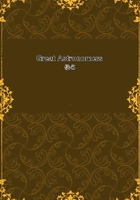
第24章 GALILE(7)
It seemed plain that the Holy Office were inclined to treat Galileo with as much clemency and consideration as was consistent with the determination that the case against him should be proceeded with to the end. The Pope intimated that in consequence of his respect for the Grand Duke of Tuscany he should permit Galileo to enjoy the privilege, quite unprecedented for a prisoner charged with heresy, of remaining as an inmate in the ambassador's house. He ought, strictly, to have been placed in the dungeons of the Inquisition.
When the examination of the accused had actually commenced, Galileo was confined, not, indeed, in the dungeons, but in comfortable rooms at the Holy Office.
By the judicious and conciliatory language of submission which Niccolini had urged Galileo to use before the Inquisitors, they were so far satisfied that they interceded with the Pope for his release.
During the remainder of the trial Galileo was accordingly permitted to go back to the ambassador's, where he was most heartily welcomed.
Sister Maria Celeste, evidently thinking this meant that the whole case was at an end, thus expresses herself:--"The joy that your last dear letter brought me, and the having to read it over and over to the nuns, who made quite a jubilee on hearing its contents, put me into such an excited state that at last I got a severe attack of headache."In his defence Galileo urged that he had already been acquitted in 1616 by Cardinal Bellarmine, when a charge of heresy was brought against him, and he contended that anything he might now have done, was no more than he had done on the preceding occasion, when the orthodoxy of his doctrines received solemn confirmation. The Inquisition seemed certainly inclined to clemency, but the Pope was not satisfied. Galileo was accordingly summoned again on the 21st June. He was to be threatened with torture if he did not forthwith give satisfactory explanations as to the reasons which led him to write the Dialogue. In this proceeding the Pope assured the Tuscan ambassador that he was treating Galileo with the utmost consideration possible in consequence of his esteem and regard for the Grand Duke, whose servant Galileo was. It was, however, necessary that some exemplary punishment be meted out to the astronomer, inasmuch as by the publication of the Dialogue he had distinctly disobeyed the injunction of silence laid upon him by the decree of 1616. Nor was it admissible for Galileo to plead that his book had been sanctioned by the Master of the Sacred College, to whose inspection it had been again and again submitted. It was held, that if the Master of the Sacred College had been unaware of the solemn warning the philosopher had already received sixteen years previously, it was the duty of Galileo to have drawn his attention to that fact.
On the 22nd June, 1633, Galileo was led to the great hall of the Inquisition, and compelled to kneel before the cardinals there assembled and hear his sentence. In a long document, most elaborately drawn up, it is definitely charged against Galileo that, in publishing the Dialogue, he committed the essentially grave error of treating the doctrine of the earth's motion as open to discussion. Galileo knew, so the document affirmed, that the Church had emphatically pronounced this notion to be contrary to Holy Writ, and that for him to consider a doctrine so stigmatized as having any shadow of probability in its favour was an act of disrespect to the authority of the Church which could not be overlooked. It was also charged against Galileo that in his Dialogue he has put the strongest arguments into the mouth, not of those who supported the orthodox doctrine, but of those who held the theory as to the earth's motion which the Church had so deliberately condemned.
After due consideration of the defence made by the prisoner, it was thereupon decreed that he had rendered himself vehemently suspected of heresy by the Holy Office, and in consequence had incurred all the censures and penalties of the sacred canons, and other decrees promulgated against such persons. The graver portion of these punishments would be remitted, if Galileo would solemnly repudiate the heresies referred to by an abjuration to be pronounced by him in the terms laid down.